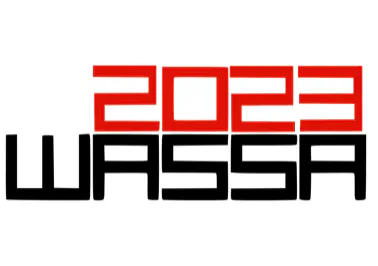WASSA Workshop @ ACL 23

ACL 23, Toronto
We are orgnizing the 13th edition of the WASSA workshop this year at ACL23!
Our keynote speakers will be David Jurgens and Emily Öhman
Invited Talk: David Jurgens

The Social Dimensions of Communication: How Context Shapes Language Use and Interpretation
NLP studies of communication often focus on the individual: What we say, when we say it, and how we say it. Yet, the larger social context beyond the individual also plays an important role in our communication — just think of things you can say to your friends but not your parents. How does the social context influence our communication style and content? In this talk, I will describe recent work from my group studying the influence of this context by examining how we choose who to communicate with, how we interpret messages, and how we phrase messages. Across these studies, I will motivate a causal approach for NLP when studying communication behavior to move beyond descriptive analyses to more precise estimates of the effects of social context.
Bio
David Jurgens is an assistant professor at the University of Michigan School of Information where he leads the Blablablab. He holds a PhD in Computer Science from the University of California, Los Angeles. His research focuses on the intersection between NLP and computational social science venues and has won the Cozzarelli Prize, Cialdini Prize, best paper at ICWSM and W-NUT, and best paper nomination at ACL and Web Science.
Invited Talk: Emily Öhman

Affective Datafication of Narratives: measuring affect, emotion, and mood in literary texts
Our understanding of affect, emotion, and mood - despite the distinct nuances each term holds - often becomes blurred, leading to a usage that is almost interchangeable, particularly within sentiment analysis and NLP. In contrast, traditional fields such as literary studies hold on to more rigid definitions of these terms and how they are understood both in theory and practice. This can easily foster a disconnect between emerging fields such as computational literary studies and the more established qualitative counterparts. This disconnect unfortunately hinders the free exchange of innovative research ideas and methodologies. This talk aims to bridge this gap, highlighting the unique roles of affect, emotion, and mood in narratives and how we can attempt to robustly measure them. We will delve into the interplay of these terms, exploring how they shape and are shaped by authors, readers, and researchers focusing on the operationalization and translation involved in the analysis of emotion-laden phenomena. This exploration will underscore the need for a more comprehensive and nuanced understanding, encouraging synergy between tradition and innovation in emotion detection in general and literary research in particular.
Bio
Emily Öhman is currently a tenure-track Assistant professor of Digital Humanities at Waseda University. She received her PhD in Language Technology from the University of Helsinki, where her work centered on building multilingual emotion detection resources for downstream tasks.
Her research interests lie within digital humanities and NLP, more specifically sentiment analysis and emotion detection, often doing collaborations with various disciplines such as history, literature, and political science. Her recent projects have focused on negative emotions in literature using affect as a proxy for the literary concept of mood and most recently contrasting the semantic spaces of shame and guilt in Japanese and English social media posts.
About WASSA
The aim of WASSA 2023 is to bring together researchers working on Subjectivity, Sentiment Analysis, Emotion Detection and Classification and their applications to other NLP or real-world tasks (e.g. public health messaging, fake news, media impact analysis, social media mining, computational literary studies) and researchers working on interdisciplinary aspects of affect computation from text. For this edition, we encourage the submission of long and short research and demo papers including, but not restricted to the following topics:
- Resources for subjectivity, sentiment, emotion and social media analysis
- Opinion retrieval, extraction, categorization, aggregation and summarization
- Humor, Irony and Sarcasm detection
- Mis- and disinformation analysis and the role of affective attributes
- Aspect and topic-based sentiment and emotion analysis
- Analysis of stable traits of social media users, incl. personality analysis and profiling
- Transfer learning for domain, language and genre portability of sentiment analysis
- Modelling commonsense knowledge for subjectivity, sentiment or emotion analysis
- Improvement of NLP tasks using subjectivity and/or sentiment analysis
- Intrinsic and extrinsic evaluation of subjectivity and/or sentiment analysis
- The role of emotions in argument mining
- Application of theories from related fields to subjectivity and sentiment analysis
- Multimodal emotion detection and classification
- Applications of sentiment and emotion mining
- Public sentiments and communication patterns of public health emergencies.
We furthermore encourage submissions to the special theme Ethics in Affective Computing, including opinion papers, as well as experimental papers. This includes the following topics, but is not limited to them:
- Which properties of a model render a automatic analysis task unethical?
- Which characteristics of an annotation task are to be considered in ethical considerations?
- What are appropriate methods to analyze data and models from an ethical perspective?
- What aspects are particular important for affective analysis tasks, in contrast to other NLP settings?